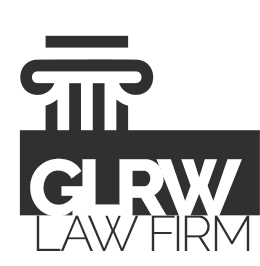
23 Aug Protecting Your Rights as a New Jersey Landlord: The Importance of Non-Waiver Clauses in Lease Agreements
Navigating landlord-tenant laws can be tricky, especially in New Jersey. As a landlord, it’s crucial to understand how to protect your rights while providing fair housing. One vital tool in your legal toolkit should be the non-waiver clause in lease agreements. This blog will demystify the non-waiver clause, showing you how it can save you from unwanted legal hassles and why consulting an eviction attorney might be in your best interest.
Understanding Non-Waiver Clauses: A Landlord’s Primer
In the dynamic world of property management, a non-waiver clause serves as a safeguard for landlords, ensuring that temporary leniency doesn’t become a permanent expectation. This legal concept is particularly relevant in New Jersey, where tenant rights are robustly protected. Incorporating non-waiver clauses in lease agreements specifies that any overlook or delay in enforcing terms or policies doesn’t constitute a waiver or relinquishment of the landlord’s right to enforce such terms in the future. This clarity is crucial, especially when disputes or misunderstandings arise.
The Legal Landscape for Landlords in New Jersey
Navigating New Jersey’s legal landscape requires a deep understanding of both state and local regulations. Landlords face a delicate balance of upholding tenant rights while protecting their investment. This balance is tempered by laws regarding evictions, rent increases, and property standards. Missteps can lead to significant legal setbacks. Staying informed and compliant is not just a recommendation; it’s a mandate for operating within New Jersey’s borders.
Why Non-Waiver Clauses are Key in Lease Agreements
Non-waiver clauses are not just legal jargon but a pivotal protection mechanism for landlords. They delineate the boundary between flexibility and policy enforcement. By stating that the acceptance of late rent or overlooking minor lease infractions does not waive the right to future enforcement, landlords can provide leniency without fearing loss of authority. This clause becomes particularly functional when articulated correctly in lease agreements, reinforcing the landlord’s stance on lease obligations.
Understanding the nuances of non-waiver clauses can serve as a landlord’s shield against unintended lease modifications. In New Jersey, where tenant protections are strong, such clauses ensure that acts of goodwill don’t lead to permanent waivers of rights. Lessons from historical cases Montgomery Gateway East I v. Ana Palau Herrara emphasize the importance of explicit terms to prevent ambiguity and uphold lease integrity.
Crafting an Effective Non-Waiver Clause: Tips and Tricks
An effective non-waiver clause requires precision and foresight. It’s not enough to merely include a generic statement; specific scenarios should be addressed to reinforce the clause’s applicability. For instance, specifying processes for handling late payments or specifying that the acceptance of rent doesn’t constitute a waiver of any other breach outside the payment itself. Tailoring these clauses to reflect the property’s policies and state laws is essential for a robust lease agreement in New Jersey.
The Role of an Eviction Attorney in Protecting Your Rights
The path to lawful evictions in New Jersey threads through intricate legal needles. An experienced eviction attorney can provide guidance, ensuring that evictions are conducted properly and within the bounds of the law. Their expertise in crafting non-waiver clauses and handling breach of lease situations is invaluable, especially when landlords wish to enforce lease terms without facing legal repercussions for procedural errors.
Real-Life Scenarios: Non-Waiver Clauses in Action
Consider the landlord who, out of compassion, accepts partial rent payments from a tenant facing financial difficulties. Without a non-waiver clause, this act of leniency could be interpreted as a modification to the lease terms. However, with a well-crafted non-waiver clause, the landlord retains the right to require full payment as specified in the lease, preserving the lease’s integrity while allowing for temporary accommodations.
FAQ: Common Questions About Non-Waiver Clauses Answered
One common question among landlords is whether a non-waiver clause means they can never forgive a breach. The answer is nuanced. While non-waiver clauses protect the landlord’s rights, they also provide the flexibility to choose when to enforce certain terms — without losing the right to enforce them in the future. Another frequent inquiry centers on the effective communication of these clauses to tenants. Clear language and explicit incorporation into the lease agreement are essential steps to ensure tenants understand their rights and obligations signatory to these clauses.
Securing Your Investment: The Final Word on Non-Waiver Clauses
In the complex landscape of New Jersey’s landlord-tenant laws, protecting your investments and rights requires diligence, understanding, and the right legal tools. Non-waiver clauses in lease agreements stand out as a critical component for maintaining your authority and ensuring your tenants understand the serious consequences of breaching their lease terms. As we’ve seen, these clauses can prevent unintended waivers of rights and help maintain the lease’s enforcement in your favor. Consulting with an experienced eviction attorney can ensure your leases include well-crafted non-waiver clauses, tailor-suited to New Jersey’s laws, safeguarding your rights and property effectively. Remember, being proactive about your legal protections is not just smart; it’s essential for every landlord’s success.




Sorry, the comment form is closed at this time.